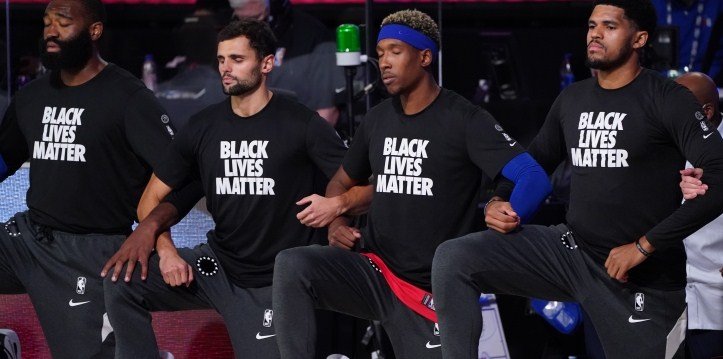Sport has always been a powerful platform for social change and political activism. From the Black Power salute at the 1968 Olympics to the kneeling protests of NFL players, athletes have used their visibility and influence to challenge the status quo and demand equality and justice. But sport is not only a tool for the elite and the famous. It is also a way for ordinary people to express their dissent and resistance against oppressive regimes and systems.
Myanmar: A defiant display of unity and courage
One of the most recent and remarkable examples of sport as a catalyst for protest is the civil disobedience movement in Myanmar, where people have been resisting the military coup since February 2021. Despite the brutal crackdowns and killings by the security forces, the protesters have shown remarkable resilience and creativity in their demonstrations. One of the ways they have done so is by using sport as a form of protest and solidarity.
From football to volleyball, from cycling to running, from yoga to aerobics, the protesters have organized various sporting events and activities to defy the junta and show their support for democracy. They have also used sport symbols and gestures, such as the three-finger salute from the Hunger Games movies, to convey their message of resistance. These sporting protests have not only boosted the morale and spirit of the protesters, but also attracted international attention and sympathy.

Belarus: A silent gesture of defiance and dignity
Another country where sport has played a significant role in the protest movement is Belarus, where people have been demanding the resignation of President Alexander Lukashenko since the disputed election in August 2020. Lukashenko, who has been in power since 1994, has been accused of rigging the vote and cracking down on the opposition and the media. Thousands of people have been arrested, beaten, tortured, and killed by the security forces, while many others have fled the country or gone into hiding.
In the face of such repression and violence, the protesters have resorted to peaceful and nonviolent methods of resistance, such as wearing white and red, the colors of the opposition flag, or holding hands in human chains. One of the most striking and symbolic forms of protest has been the silent standing ovation, which was inspired by a group of basketball fans who clapped for 15 minutes during a game in November 2020.
Since then, the silent standing ovation has become a popular and widespread gesture of defiance and dignity among the protesters, who have performed it in various public places, such as cinemas, theatres, concerts, and sports arenas. The silent standing ovation has also been adopted by some Belarusian athletes, who have risked their careers and lives to show their solidarity with the people and their dissatisfaction with the regime.
Hong Kong: A vocal expression of identity and autonomy
A third case where sport has been a catalyst for protest is Hong Kong, where people have been fighting for their rights and freedoms since the anti-extradition bill protests in 2019. The protests, which were sparked by a proposed law that would have allowed the extradition of suspects to mainland China, have evolved into a broader movement for democracy and autonomy, as well as a rejection of Beijing’s interference and influence. The protesters have faced harsh and disproportionate responses from the police and the government, who have used tear gas, rubber bullets, water cannons, and arrests to suppress the dissent.
One of the ways the protesters have expressed their identity and autonomy is by singing and chanting slogans during sporting events, especially football matches. The most famous and controversial slogan is “Glory to Hong Kong”, which is widely regarded as the unofficial anthem of the protest movement. The song, which was composed by an anonymous musician and sung by a choir of protesters, has become a rallying cry and a source of pride and inspiration for many Hong Kongers.
However, the song has also provoked the ire and wrath of the authorities, who have banned it from being played or sung at official events, such as the Tokyo Olympics, where Hong Kong athletes competed under the Chinese flag. The ban has not deterred the protesters, who have continued to sing and chant the song at various occasions, such as the arrival of the Olympic medalists at the airport, or the screening of the Paralympic Games at a shopping mall.
Sport: A universal language of protest and empowerment
These three cases illustrate how sport can be a catalyst for protest and empowerment, especially in situations where people face oppression and injustice. Sport can provide a platform for people to express their views and values, to challenge the dominant narratives and norms, and to mobilize and organize themselves for collective action. Sport can also create a sense of community and solidarity among people who share a common cause and vision, as well as a sense of identity and dignity among people who face discrimination and marginalization.
Sport is not only a form of entertainment and recreation, but also a form of communication and education. Sport can speak a universal language that transcends borders and barriers, and that resonates with people from different backgrounds and cultures. Sport can also teach valuable lessons and skills, such as courage, resilience, creativity, and cooperation, that are essential for social change and political activism.
Sport is not a panacea or a substitute for other forms of protest and empowerment, but rather a complement and a catalyst. Sport can amplify and reinforce the messages and demands of the people, as well as inspire and empower them to continue their struggle for justice and democracy.
